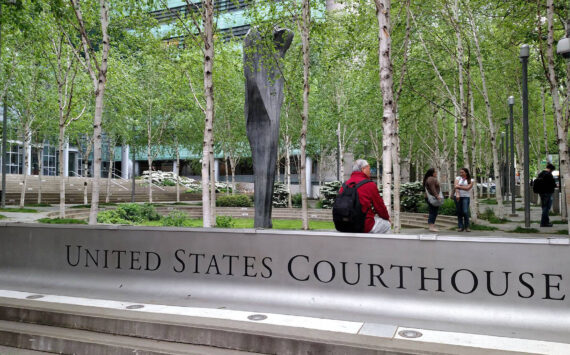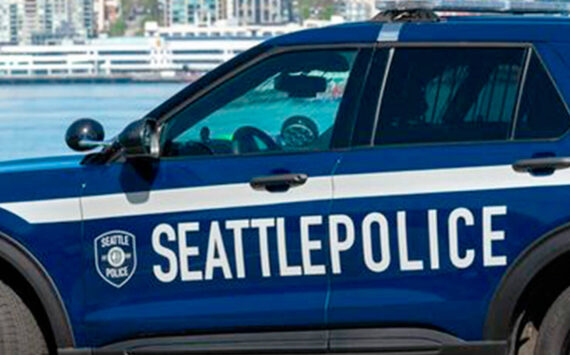Don’t count the cross-Cascade fuel pipeline out just yet. Officials of the Olympic Pipe Line Company, which runs the north-south pipeline that went boom in Bellingham last month, said they’re only withdrawing their proposal for a new cross-state pipeline temporarily while they focus on clean-up, investigations, and damage control. Okay, they didn’t say “damage control.” But no sane company would want to defend a controversial proposed pipeline and a troubled old pipeline at the same time. And Olympic’s job may soon get tougher, when the data from a 1996 “smart pig” survey of its existing pipeline is leaked into public view.
A “pig” in pipeline parlance is a moving plug used to separate different fluids; a “smart pig” is one equipped with computerized sensors that measures the thickness of the pipe walls as it squeezes through. Pipeline opponents have now obtained the 1996 data through discovery in their suit to stop the Cascade pipeline. The buzz is that these will show many, perhaps hundreds, of weak spots similar to the suspicious gouge and other flaws found near the point where the pipeline burst. “I’m pretty confident we’re going to find the same anomalies [as at the leak site] all along the route,” says Susan Harper, executive director of the anti-pipeline Cascade Columbia Alliance.
Harper is so confident the Olympic pipeline will have to be dug up and fixed, she talks of using the jobs that will create to entice support from labor unions, which have so far supported building the new pipeline. The pipeline opponents’ attorney, David Bricklin, declines to discuss the smart-pig data till he can “assess” it and share it with federal investigators. An Olympic spokesperson didn’t return calls asking about the findings.
Mickey D’s meets Mickey Gilley’s
The crowd around the McDonald’s at Third and Pine, long a meeting ground for downtown street-corner society, looks smaller, more subdued, and, well, whiter of late. That might have something to do with the country-and-western music playing over the loudspeaker. Not to impute any racial motive here; you don’t have to be black to hate Nashville schlock. But businesses and towns often use music to define clientele and discourage idlers—as when they pipe out easy-listening or classical sounds to drive off riffraff. Asked about McDonald’s intent, the manager would only say, “That’s our choice.”
So who else’s would it be—Mark Sidran’s?
Battle Mountain takedown
One more hurdle has fallen in a Texas mining company’s drive to carve a cyanide-leaching open-pit gold mine into federal lands on pristine Battle Mountain in Okanogan County. In May, US Sen. Slade Gorton slid a rider into a Kosovo and hurricane-relief bill overturning the administration’s eleventh-hour rejection of the mine. Last week the US Army Corps of Engineers issued the Battle Mountain Gold Company a permit to excavate and fill 3.76 acres of wetlands and streams. The Corps’ pro forma announcement notes that it considered “economics” and “the needs and welfare of the people” as well as environmental impacts in weighing the permit. And the good that streams and wetlands do isn’t measured in short-term dollars.
Wise words from umpire Slade
Still, Gorton, who has twice contrived to keep big-league baseball in Seattle, now offers some wisdom (no kidding) on the Mariners’ latest stadium-financing imbroglio. “I will play no role in resolving that dispute,” reads his statement, except to note that “the Mariners are swimming upstream against a strong current.” Hint, hint. Gorton goes on to note that the real issue isn’t who pays for this shortfall. It’s the big-market teams’ refusal to share revenues NFL-style with smaller, money-losing markets: “Until that change is made, we will continue to see the Steinbrenners and Turners laugh their way to the bank while teams in Seattle, Oakland, Kansas City, Pittsburgh and Minnesota struggle to be competitive.” So what could Gorton and his fellow solons do to force that change? Jerk away the antitrust exemption that lets the baseball barons collude in running the game, unless they agree to share.
Drawn to office
This town has elected enough caricatures to office, why not a caricaturist? That’s the thinking of Thomas Whittemore, who used to draw editorial cartoons for this paper back in the antediluvian ’80s; he’s announced he’s running for the City Council, though he’s not sure for which position. Whittemore, who’s president of the Ballard District Council and is working to get the Ballard commuter-rail station built, would likely bring overdue attention to a corner of the city which has long suffered from City Hall neglect and, sometimes, abuse. (In the rezones of the early ’80s, noisy Queen Anne got its duplex zones reduced to single-family; Ballard’s were upped to multifamily. As a result, it got packed with ugly apartment boxes.) But he vows to take a broader view: “I’m going to work on making sure the neighborhood plans encourage synchronization.” He also says he wouldn’t caricature fellow council members, but then wavers: “This year I’ll probably forgo it.”
The Aurora dash
I saw a too-familiar site on the Queen Anne section of Aurora Avenue the other night: a young guy dashing across as cars pushing 60 mph barely missed him, and then scrambling like a jail-breaking con over the concrete barrier in the middle to dare death again on the other side. Seattle officials and Sen. Jeanne Kohl-Welles have jockeyed for years for a pedestrian bridge across this perilous state highway, where four have died and 40 gotten badly hurt since 1980. But just when it looked like a go, disability law threw a loop: any bridge would have to have elevators or long, space-hogging ramps, making it a million-dollar rather than hundred-thousand-dollar job.
The good news: looks like the money’s finally in, with $1 million appropriated by the Legislature and more coming from the city. But even with a bridge, some idiots will still want to test their times at the 40-yard dash.







